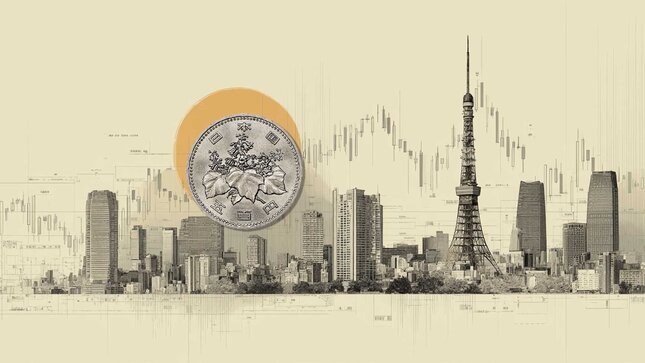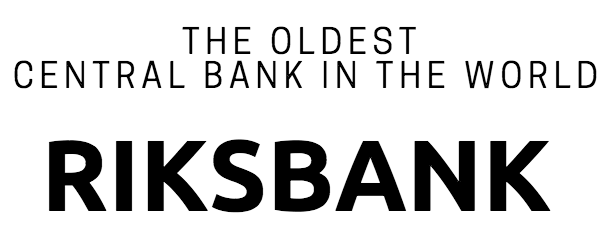Money is power.
This is true since its inception and will still be true in the years to come.
The last few centuries saw economies rise and fall, mostly due to war. But, even in the most difficult times, it was obvious that countries need to control the value of their money.
And so, central banking appeared. First in Sweden (Riksbank is the oldest central bank in the world) and then the concept quickly spread around the world.
The Idea
The idea behind a central bank's creation is to use economic concepts to control the money in an economy. Both quantity and quality matter.
Ever since countries realized the power of exporting goods and the benefits of importing, economic concepts changed the world. Central banking came naturally as the value of money can be controlled.
I won't go into more historical details, even though history tells us much about how central banking today works. The aim of this article is to present the role of today's central banking.
As a price action trader, I love charts. But it would be foolish if we don't try to understand the drivers in the Forex market. Who sets the rules, why and how we can use the information in our favour?
A very important answer comes from the central banking system.
Explaining Today's Central Banking
The financial system as we know it today gravitates around the world's reserve currency.
That's the U.S. Dollar.
Prior to the dollar, the British Pound enjoyed the privileges of the world's reserve currency status. Since the Bretton Woods Summit, the world became "dollarized".
Forex traders trade currencies. However, at a closer look, forex traders trade the state of major economies in the world.
Think of them: United States, Japan, United Kingdom, Eurozone, Canada, Australia, New Zealand...and then list their respective currencies: USD, JPY, GBP, EUR, CAD, AUD, and NZD.
Next, combine those currencies. Mix them up! The result represents the Forex dashboard. Or, at least, the most important currency pairs.
So, when traders look at the economic calendar and wait for a currency to move, they, in fact, analyse an economy. The economic differences between the countries listed above will reflect on the strength of their currency.
Who Is In Charge?
Who's in charge of controlling the fluctuations and the value of a nation's currency?
The central bank.
As such, the Federal Reserve of the United States, Bank of Japan, Bank of England, the European Central Bank, Bank of Canada, the Reserve Bank of Australia and the Reserve Bank of New Zealand are the most important central banks in the world.
Their role is to set the monetary policy for the currency in their jurisdiction. Therefore, they control both the value of their currency and the tools to use.
In Forex trading, that's all that matters. Technical traders can only adapt to changes in the macro economic picture. Anomalies appear from time to time. But, they're short lived.
What people don't know is that ALL central banks work under the umbrella of one entity. A global one, headquartered in Basel, Switzerland. The Bank for International Settlements (BIS).
BIS – The Mother of All Central Banks
Known as the mother of all central banks, BIS supervises money transmission around the world. And, it makes sure the regional monetary policies are implemented accordingly.
Like any central bank, BIS has a governing body. Guess who makes the list?
The heads of the major central banks in the world, of course. The Fed Chairman/Chairwoman, the ECB (European Central Bank) President, and so on.
With this in mind, traders must shrug off the idea of a central bank acting on its own.
It doesn't.
They coordinate their actions via regular BIS meetings. What the Fed does with the interest rate is well-known by the Fed counterparts around the world.
And, sometimes, well in advance as the central bank's members discuss the local issues at the BIS meetings.
USD – The World's Reserve Currency
Because we live in a globalised world, the need for an entity like BIS was stringent. The United States, for example, cannot be isolated from the rest of the world, if it is to keep the dollar at the centre of the global monetary policy.
When interest rates in the United States change, this sends shock-waves around the world. Both when it raises or cuts the rates.
Let's imagine the following two situations.
1) Cutting Rates
When the Fed cuts the rates, it floods the world's financial system with dollars. With cheap dollars.
While emerging markets and other countries enjoy the move (they can borrow in dollars paying a lower interest rate), soon other major economies will follow suit. Why?
The United States' economy is the world's biggest. When the Fed cuts rates, the economy must be gripped. That will soon be transmitted all over the world.
There's a saying: when the U.S. sneezes, the rest of the world catches a cold.
2) Hiking...not in the mountains
How about Fed hiking rates? That's good news, right?
The U.S. economy, the world's largest, is doing fine.
Well, that may be good news in the States, but the rest of the world will have a tough time coping with higher dollar interest rates. All major international loans are denominated in dollars. Hence, the interest on those dollars gives hard times to the local governments.
Conclusion
Only fools believe a central bank acts on its own. Even back at the early 1900's, central banks around the world acted in a concerted manner.
While it was no entity like BIS, they simply couldn't act on their own, without other parties knowing and approving the moves beforehand. In a way, this is normal.
Since transportation changed the way people move and live, the value of money entered a new era. Hence, central banking had to adapt. How to keep the value of a currency while affecting people's lives as little as possible?
Welcome to 21st-century central banking. Like it or not, regulating money brings more benefits in the long run.
And, the ones who control the money, hold the power. That's why central banks around the world strive for independence.
Do they have it? Or is the power concentrated in the hands of a mighty entity like Bank for International Settlements?
This material is written for educational purposes only. By no means do any of its contents recommend, advocate or urge the buying, selling or holding of any financial instrument whatsoever. Trading and Investing involves high levels of risk. The author expresses personal opinions and will not assume any responsibility whatsoever for the actions of the reader. The author may or may not have positions in Financial Instruments discussed in this newsletter. Future results can be dramatically different from the opinions expressed herein. Past performance does not guarantee future results.
Editors’ Picks

EUR/USD: US Dollar to remain pressured until uncertainty fog dissipates Premium
The EUR/USD pair lost additional ground in the first week of February, settling at around 1.1820. The reversal lost momentum after the pair peaked at 1.2082 in January, its highest since mid-2021.

Gold: Volatility persists in commodity space Premium
After losing more than 8% to end the previous week, Gold (XAU/USD) remained under heavy selling pressure on Monday and dropped toward $4,400. Although XAU/USD staged a decisive rebound afterward, it failed to stabilize above $5,000.

GBP/USD: Pound Sterling tests key support ahead of a big week Premium
The Pound Sterling (GBP) changed course against the US Dollar (USD), with GBP/USD giving up nearly 200 pips in a dramatic correction.

Bitcoin: The worst may be behind us
Bitcoin (BTC) price recovers slightly, trading at $65,000 at the time of writing on Friday, after reaching a low of $60,000 during the early Asian trading session. The Crypto King remained under pressure so far this week, posting three consecutive weeks of losses exceeding 30%.

Three scenarios for Japanese Yen ahead of snap election Premium
The latest polls point to a dominant win for the ruling bloc at the upcoming Japanese snap election. The larger Sanae Takaichi’s mandate, the more investors fear faster implementation of tax cuts and spending plans.
RECOMMENDED LESSONS
Making money in forex is easy if you know how the bankers trade!
I’m often mystified in my educational forex articles why so many traders struggle to make consistent money out of forex trading. The answer has more to do with what they don’t know than what they do know. After working in investment banks for 20 years many of which were as a Chief trader its second knowledge how to extract cash out of the market.
5 Forex News Events You Need To Know
In the fast moving world of currency markets where huge moves can seemingly come from nowhere, it is extremely important for new traders to learn about the various economic indicators and forex news events and releases that shape the markets. Indeed, quickly getting a handle on which data to look out for, what it means, and how to trade it can see new traders quickly become far more profitable and sets up the road to long term success.
Top 10 Chart Patterns Every Trader Should Know
Chart patterns are one of the most effective trading tools for a trader. They are pure price-action, and form on the basis of underlying buying and selling pressure. Chart patterns have a proven track-record, and traders use them to identify continuation or reversal signals, to open positions and identify price targets.
7 Ways to Avoid Forex Scams
The forex industry is recently seeing more and more scams. Here are 7 ways to avoid losing your money in such scams: Forex scams are becoming frequent. Michael Greenberg reports on luxurious expenses, including a submarine bought from the money taken from forex traders. Here’s another report of a forex fraud. So, how can we avoid falling in such forex scams?
What Are the 10 Fatal Mistakes Traders Make
Trading is exciting. Trading is hard. Trading is extremely hard. Some say that it takes more than 10,000 hours to master. Others believe that trading is the way to quick riches. They might be both wrong. What is important to know that no matter how experienced you are, mistakes will be part of the trading process.
The challenge: Timing the market and trader psychology
Successful trading often comes down to timing – entering and exiting trades at the right moments. Yet timing the market is notoriously difficult, largely because human psychology can derail even the best plans. Two powerful emotions in particular – fear and greed – tend to drive trading decisions off course.





